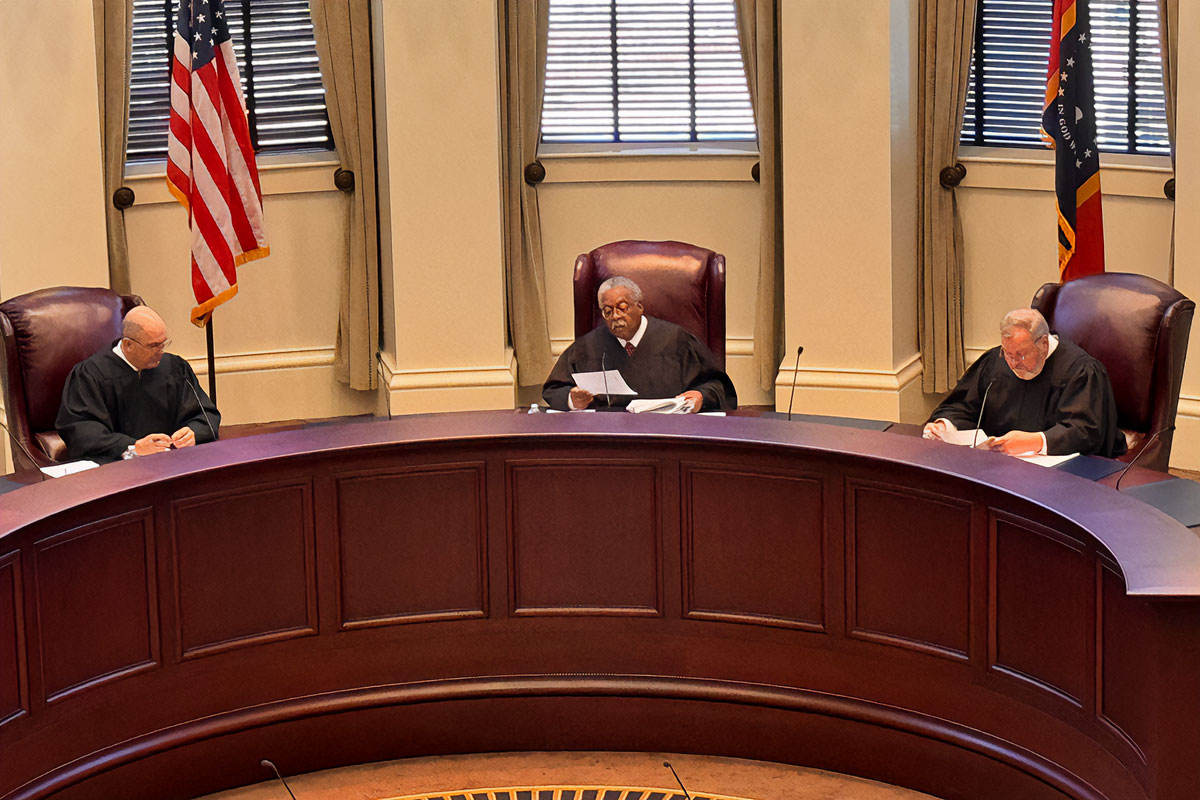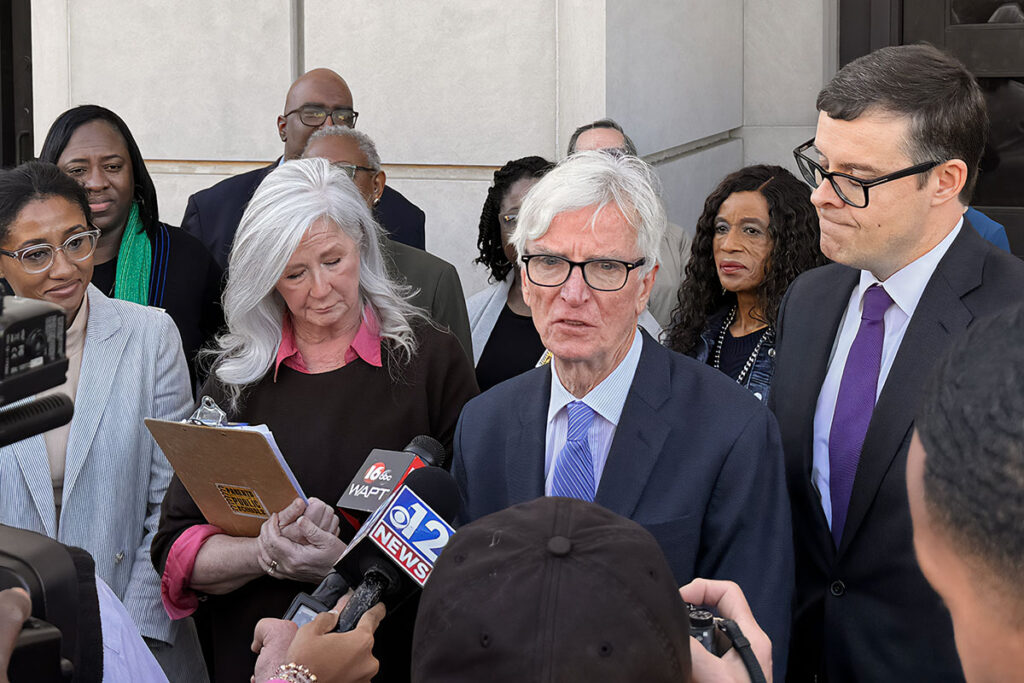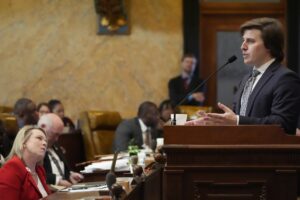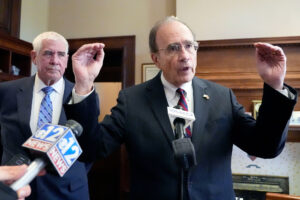The sound of schoolchildren playing less than a block away from reached the steps of the Mississippi Supreme Court building as attorneys argued over whether federal public funds should be awarded to the state’s private schools on Tuesday.
Rob McDuff, a Mississippi Center for Justice attorney representing the pro-public education nonprofit organization Parents For Public Schools, called a prohibition in the state’s constitution on funding for private schools “an ironclad principle” that “doesn’t have exceptions” during oral arguments.
Mississippi Supreme Court justices Leslie King, Robert Chamberlain and David Ishee also heard arguments from attorneys representing the Mid-South Association of Independent Schools and the Mississippi Attorney General’s Office defending the use of COVID-19 relief funds for private schools..
Parents for Public Schools filed the initial lawsuit in June 2022 after state lawmakers passed bills appropriating $10 million to help MAIS member schools pay for broadband, water and infrastructure projects. One bill Gov. Tate Reeves signed into law created the Independent Schools Infrastructure Grant Program. The other allocated American Rescue Plan funds for the program. The Legislature had set the grant to go into effect on July 1, 2022.
The pro-public education organization’s lawyers argued that awarding the funds to private schools violates Section 208 of the Mississippi Constitution and would give private schools a competitive advantage. That section of the Constitution says that “no religious or other sect or sects shall ever control any part of the school or other educational funds of this state; nor shall any funds be appropriated toward the support of any sectarian school, or to any school that at the time of receiving such appropriation is not conducted as a free school.”
“This is a case about a lot more than 10 million dollars,” Will Bardwell, an attorney from Democracy Forward, who also argued on behalf of Parents for Public Schools, told media after the Feb. 6 hearing. “This is a case about part of the Mississippi Constitution that reserves all of the state’s education funding for public schools. If we’re going to make exceptions to that for a 10 million dollar appropriation, then we can make exceptions about that for a 100 million dollar appropriation or a 500 million dollar appropriation. This is a simple case and it’s about a lot more than 10 million dollars.”

In October 2022, Hinds County Chancery Court Judge Crystal Wise Martin ruled that the appropriation was unconstitutional. The longrunning legal case has kept the funds in limbo.
“Whether that money is fixing the school building or providing educational resources, the principle is the same,” McDuff said during the post-hearing press conference. “If there’s any public funding, it’s got to go to public schools.”
Mississippi Attorney General Lynn Fitch appealed to the Mississippi Supreme Court in September 2023, arguing that the Legislature did not appropriate the funds directly to private schools. Instead, the State appropriated the funds to the Department of Finance and Administration to oversee the grant, her office argued. Presiding Justice King pointed out that the State does not make appropriations directly to any school.
“Even for public schools, the appropriation is to the State Department of Education. Is that correct?” King said in court Tuesday.
“That’s right,” Deputy Mississippi Solicitor General Justin Matheny replied.
Matheny also argued that Section 208 does not apply because the money comes from federal funds designated for COVID-19 relief and not education funds.
“The last clause leaves room for state support of independent schools,” Matheny said. “It bars direct legislative appropriations of state education funds to independent schools but the ARPA grants at issue here are no such thing. The Legislature appropriated federal disaster aid to DFA. That was lawful.”
Senior Counsel for Liberty Justice Center Buck Dougherty represented MAIS at the hearing. Wise did not allow the independent school association to intervene in the lower Hinds County court. Dougherty said that MAIS has a right to relief funds.
“This is federal money from the federal government and the COVID-19 funds were not to go to education per se,” Doughtery said. “It was going to infrastructure development and the Legislature of Mississippi chose to appropriate that money to MAIS.”










